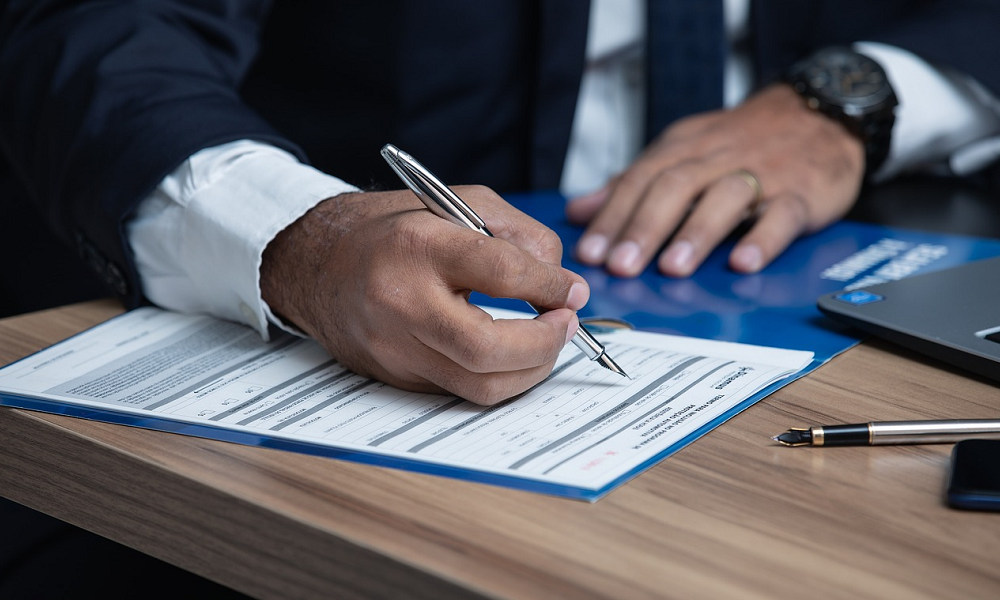Reviews
Legal Help for Professionals Facing License Suspension

Everything is bigger in Texas—including the stakes when it comes to professional success. As one of the nation’s economic powerhouses, Texas thrives on the talents of countless licensed professionals, from doctors and nurses to educators and engineers. Their expertise keeps its vibrant industries running smoothly. Yet, maintaining a professional license in such a dynamic environment comes with its own challenges. Texas boasts strict regulatory standards that aim to uphold the integrity of its professional fields. However, these regulations can create high-pressure situations for professionals facing complaints, audits, or misconduct allegations.
When a professional’s license is on the line, so is their livelihood, reputation, and future. Navigating the complex maze of rules enforced by licensing boards can feel overwhelming. That’s where specialized legal support becomes essential. A professional license defense lawyer not only understands the nuances of Texas licensing laws but also provides the strategic insight to protect careers. By addressing concerns swiftly and effectively, these legal advocates help professionals preserve their ability to contribute to the Lone Star State’s prosperity.
The Concept of License Revocation
When a regulatory authority temporarily withdraws a professional’s license to practice their profession due to misconduct, negligence, or noncompliance, there are many repercussions. It not only pauses their career but also significantly affects their reputation and financial well-being.
Causes for the Suspension
There are many reasons why a license could be suspended in professions. For example, unethical behavior or malpractice allegations may prompt an investigation. Administrative errors, like expired credentials or failing to meet ongoing education criteria, could also lead to suspension of the license. Each field has its own rules and regulations that professionals must be aware of and adhere to diligently.
Next Actions to Consider
When you get a notice about a suspension, it’s crucial to act quickly. Start by reading the notice to grasp the accusations or issues raised. Collecting paperwork, like contracts, records, or messages, can help you see things clearly. These details will be the basis for building your defense plan.
Obtaining Legal Assistance
Bringing on board a legal specialist who focuses on defending licenses can prove to be incredibly advantageous. These experts have a good grasp of the rules and regulations in place and can provide valuable advice. They aid in assessing the scenario, pinpointing defenses, and standing by professionals during hearings or discussions with licensing authorities.
Crafting a Defense Plan
Developing a defense plan requires planning and coordination between legal professionals and experts in the field to collect evidence and statements from witnesses effectively. They play a key role in presenting the professional’s perspective to authorities through a joint effort that enhances the likelihood of a positive resolution.
Delving Into Possible Solutions
There are times when other solutions could be an option to consider. Talking things out and reaching agreements on ways to fix issues might prevent the need for suspension. Legal experts can assist in evaluating these choices and deciding if they are in the individual’s interest. These resolutions often manage to maintain a person’s reputation while tackling the issues that were brought up.
Exploring the Process of Appealing
If a suspension happens and you want to challenge it with an appeal, there’s a process for that purpose. You must ensure you carefully follow all the rules and deadlines when filing an appeal request. At this point, having an expert by your side is important as they will ensure all the required documents are ready and submitted in time. A well-crafted appeal may bring up new facts or legal points that could lead to the suspension being reversed.
Getting Back on Track
After the suspension is over and work resumes, one needs to prioritize rebuilding their career path. The list of things to tackle post-suspension must prioritize meeting any requirements laid out by the licensing board, whether further training or compliance assessments. Professionals are also advised to review their methodologies to guarantee they align with industry norms and legalities. Reflecting on previous encounters can spur personal development and mitigate potential future challenges.
Ongoing Professional Growth
To keep your license valid, it’s important to keep learning and improving your skills regularly in your field of expertise. Continuing professional development helps you meet the requirements set by regulations and boosts your knowledge and reputation. Keeping up with the trends and developments in your industry is crucial to staying competitive and well-informed.
In Summary
Going through the possibility of having your license suspended can be really tough and overwhelming sometimes. However, it can also be a chance to learn and think about things in a new light! Knowing what choices you have within the system and getting support from people who know what they’re doing can really help you get through this time more smoothly. Taking the initiative by being prepared with all the information you need and reaching out to experts can make a huge difference in safeguarding your reputation and staying active in your industry.

-

 World3 days ago
World3 days agoEthiopian volcano erupts for first time in thousands of years
-

 Legal1 week ago
Legal1 week agoMichigan man JD Vance sentenced to 2 years for threatening Trump and JD Vance
-

 Legal1 week ago
Legal1 week agoWoman in critical condition after being set on fire on Chicago train
-

 World1 week ago
World1 week agoHurricane Melissa registered 252 mph wind gust, breaking global record
-

 Legal8 hours ago
Legal8 hours agoUtah Amber Alert: Jessika Francisco abducted by sex offender in Ogden
-

 Legal6 days ago
Legal6 days agoSuspect in San Diego stabbing shot by authorities after fleeing into Mexico
-

 Legal1 week ago
Legal1 week ago1 dead, 2 injured in shooting at Dallas Walmart parking lot
-

 Health6 days ago
Health6 days agoMarburg virus outbreak in Ethiopia grows to 6 confirmed cases




